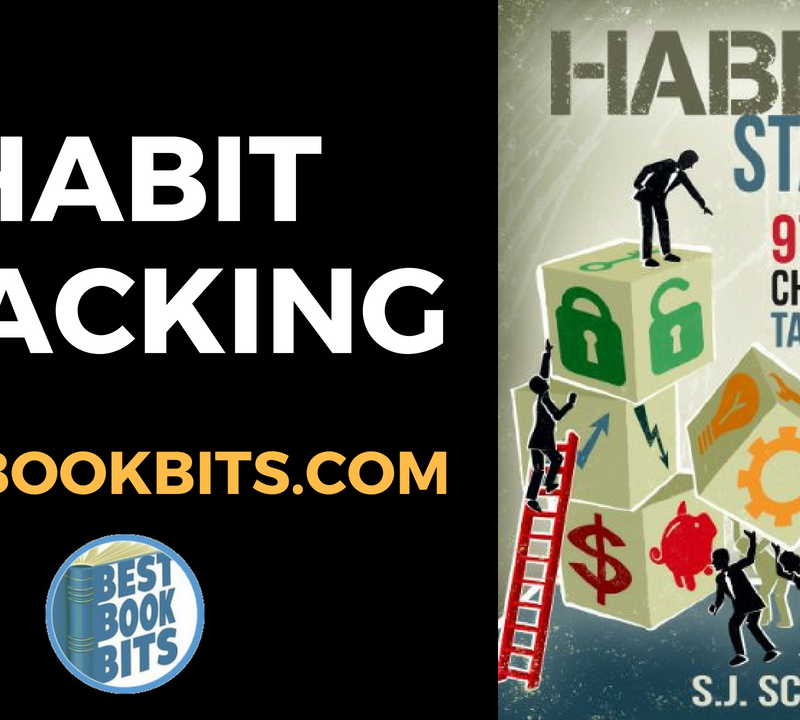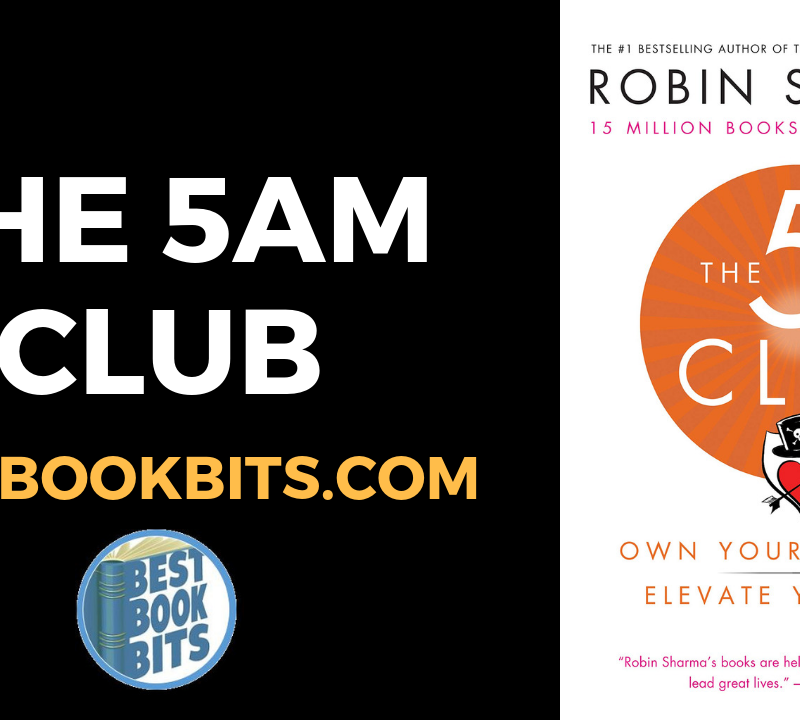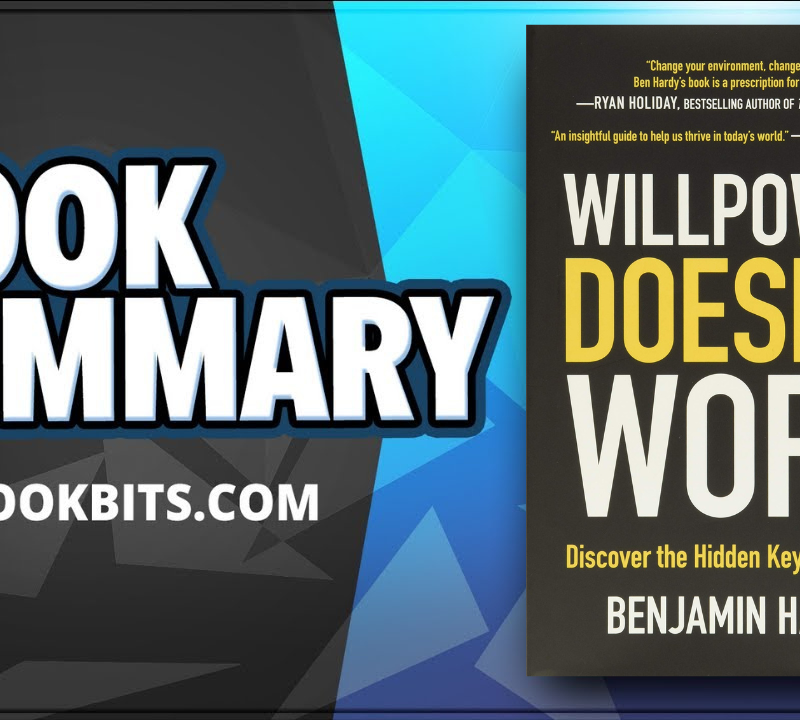★DOWNLOAD THIS FREE PDF SUMMARY HERE https://go.bestbookbits.com/freepdf
? MY FREE BOOK TO LIVING YOUR DREAM LIFE” https://go.bestbookbits.com/first-seven-steps
? SPONSOR BESTBOOKBITS BY USING PATREON https://www.patreon.com/bestbookbits
? SUPPORT BESTBOOKBITS BY CLICKING THE LINKS BELOW
150 PDF Summaries: https://go.bestbookbits.com/150
Coaching Program: https://go.bestbookbits.com/coaching
Subscribe to My Channel: https://www.youtube.com/bestbookbits?sub_confirmation=1
Website: https://bestbookbits.com
Instagram: https://www.instagram.com/bestbookbits
Spotify: https://open.spotify.com/show/0q8OW3dNrLISzyRSEovTBy
Facebook: https://www.facebook.com/michaelbestbookbits
Book Club: https://bestbookbits.com/bookclub/
Mailing List: https://mailchi.mp/d1dfc1907cdb/bestbookbits
Chapter 1: The Surprising Power of Tiny Habits
“Success is the product of daily habits—not once-in-a-lifetime transformations.”
“You should be far more concerned with your current trajectory than with your current results.”
“Your outcomes are a lagging measure of your habits. Your net worth is a lagging measure of your financial habits. Your weight is a lagging measure of your eating habits. Your knowledge is a lagging measure of your learning habits. Your clutter is a lagging measure of your cleaning habits. You get what you repeat.”
“Time magnifies the margin between success and failure. It will multiply whatever you feed it. Good habits make time your ally. Bad habits make time your enemy.”
“Goals are about the results you want to achieve. Systems are about the processes that lead to those results.”
“If you want to predict where you’ll end up in life, all you have to do is follow the curve of tiny gains or tiny losses, and see how your daily choices will compound ten or twenty years down the line.”
“Breakthrough moments are often the result of many previous actions, which build up the potential required to unleash a major change.”
If you find yourself struggling to build a good habit or break a bad one, it is not because you have lost your ability to improve. It is often because you have not yet crossed what James calls, “Plateau of Latent Potential.”
“When you finally break through the Plateau of Latent Potential, people will call it an overnight success.”
“The purpose of setting goals is to win the game. The purpose of building systems is to continue playing the game. True long-term thinking is goal-less thinking. It’s not about any single accomplishment. It is about the cycle of endless refinement and continuous improvement.”
“Ultimately, it is your commitment to the process that will determine your progress.”
“Habits are the compound interest of self-improvement.”
“Getting 1 percent better every day counts for a lot in the long-run.”
“Habits are a double-edged sword. They can work for you or against you, which is why understanding the details is essential.”
“Small changes often appear to make no difference until you cross a critical threshold. The most powerful outcomes of any compounding process are delayed. You need to be patient.”
“An atomic habit is a little habit that is part of a larger system. Just as atoms are the building blocks of molecules, atomic habits are the building blocks of remarkable results.”
“If you want better results, then forget about setting goals. Focus on your system instead.”
“You do not rise to the level of your goals. You fall to the level of your systems.”
Chapter 2: How Your Habits Shape Your Identity (and Vice Versa)
“Changing our habits is challenging for two reasons: (1) we try to change the wrong thing and (2) we try to change our habits in the wrong way.”
“There are three layers of behavior change: a change in your outcomes, a change in your processes, or a change in your identity.”
“Outcomes are about what you get. Processes are about what you do. Identity is about what you believe.”
“With outcome-based habits, the focus is on what you want to achieve. With identity-based habits, the focus is on who you wish to become.”
“The ultimate form of intrinsic motivation is when a habit becomes part of your identity.”
“It is a simple two-step process: Decide the type of person you want to be. Prove it to yourself with small wins.”
“Ask yourself, “Who is the type of person that could get the outcome I want?”
“The most effective way to change your habits is to focus not on what you want to achieve, but on who you wish to become.”
“Your identity emerges out of your habits. Every action is a vote for the type of person you wish to become.”
“Becoming the best version of yourself requires you to continuously edit your beliefs, and to upgrade and expand your identity.”
“The real reason habits matter is not because they can get you better results (although they can do that), but because they can change your beliefs about yourself.”
Chapter 3: How to Build Better Habits in 4 Simple Steps
Whenever you want to change your behavior, ask yourself:
- How can I make it obvious?
- How can I make it attractive?
- How can I make it easy?
- How can I make it satisfying?
“A habit is a behavior that has been repeated enough times to become automatic.”
“The ultimate purpose of habits is to solve the problems of life with as little energy and effort as possible.”
“Any habit can be broken down into a feedback loop that involves four steps: cue, craving, response, and reward.”
“The Four Laws of Behavior Change are a simple set of rules we can use to build better habits. They are (1) make it obvious, (2) make it attractive, (3) make it easy, and (4) make it satisfying.”
Chapter 4: The Man Who Didn’t Look Right
“If you’re having trouble determining how to rate a particular habit, ask yourself: ‘Does this behavior help me become the type of person I wish to be? Does this habit cast a vote for or against my desired identity?’”
“With enough practice, your brain will pick up on the cues that predict certain outcomes without consciously thinking about it.”
“Once our habits become automatic, we stop paying attention to what we are doing.”
“The process of behavior change always starts with awareness. You need to be aware of your habits before you can change them.”
“Pointing-and-Calling raises your level of awareness from a nonconscious habit to a more conscious level by verbalizing your actions.”
“The Habits Scorecard is a simple exercise you can use to become more aware of your behavior.”
Chapter 5: The Best Way to Start a New Habit
“The 1st Law of Behavior Change is make it obvious.”
“Many people think they lack motivation when what they really lack is clarity.”
“The Diderot Effect states that obtaining a new possession often creates a spiral of consumption that leads to additional purchases.”
“One of the best ways to build a new habit is to identify a current habit you already do each day and then stack your new behavior on top. This is called habit stacking.”
“The habit stacking formula is: ‘After [CURRENT HABIT], I will [NEW HABIT].’”
“The two most common cues are time and location.”
“Creating an implementation intention is a strategy you can use to pair a new habit with a specific time and location.”
“The implementation intention formula is: I will [BEHAVIOR] at [TIME] in [LOCATION].”
“Habit stacking is a strategy you can use to pair a new habit with a current habit.”
“The habit stacking formula is: After [CURRENT HABIT], I will [NEW HABIT].”
Chapter 6: Motivation is Overrated; Environment Often Matters More
“Environment is the invisible hand that shapes human behavior.”
“Small changes in context can lead to large changes in behavior over time.”
“Every habit is initiated by a cue. We are more likely to notice cues that stand out.”
“Make the cues of good habits obvious in your environment.”
“Gradually, your habits become associated not with a single trigger but with the entire context surrounding the behavior. The context becomes the cue.”
“It is easier to build new habits in a new environment because you are not fighting against old cues.”
Chapter 7: The Secret to Self-Control
“The inversion of the 1st Law of Behavior Change is make it invisible.”
“Once a habit is formed, it is unlikely to be forgotten.”
“People with high self-control tend to spend less time in tempting situations. It’s easier to avoid temptation than resist it.”
“One of the most practical ways to eliminate a bad habit is to reduce exposure to the cue that causes it.”
“Self-control is a short-term strategy, not a long-term one.”
Chapter 8: How to Make a Habit Irresistible
“The 2nd Law of Behavior Change is make it attractive.”
“The more attractive an opportunity is, the more likely it is to become habit-forming.”
“Habits are a dopamine-driven feedback loop. When dopamine rises, so does our motivation to act.”
“It is the anticipation of a reward—not the fulfillment of it—that gets us to take action. The greater the anticipation, the greater the dopamine spike.”
“Temptation bundling is one way to make your habits more attractive. The strategy is to pair an action you want to do with an action you need to do.”
Chapter 9: The Role of Family and Friends in Shaping Your Habits
“The culture we live in determines which behaviors are attractive to us.”
“We tend to adopt habits that are praised and approved of by our culture because we have a strong desire to fit in and belong to the tribe.”
“We tend to imitate the habits of three social groups: the close (family and friends), the many (the tribe), and the powerful (those with status and prestige).”
“One of the most effective things you can do to build better habits is to join a culture where (1) your desired behavior is the normal behavior and (2) you already have something in common with the group.”
“The normal behavior of the tribe often overpowers the desired behavior of the individual. Most days, we’d rather be wrong with the crowd than be right by ourselves.”
“If a behavior can get us approval, respect, and praise, we find it attractive.”
Chapter 10: How to Find and Fix The Cause of Your Bad Habits
“The inversion of the 2nd Law of Behavior Change is make it unattractive.”
“Every behavior has a surface level craving and a deeper underlying motive.”
“Your habits are modern-day solutions to ancient desires.”
“The cause of your habits is actually the prediction that precedes them. The prediction leads to a feeling.”
“Highlight the benefits of avoiding a bad habit to make it seem unattractive.”
“Habits are attractive when we associate them with positive feelings and unattractive when we associate them with negative feelings. Create a motivation ritual by doing something you enjoy immediately before a difficult habit.”
Chapter 11: Walk Slowly, But Never Backward
“The 3rd Law of Behavior Change is make it easy.”
“The most effective form of learning is practice, not planning.”
“Focus on taking action, not being in motion.”
“Habit formation is the process by which a behavior becomes progressively more automatic through repetition.”
“The amount of time you have been performing a habit is not as important as the number of times you have performed it.”
Chapter 12: The Law of Least Effort
“Human behavior follows the Law of Least Effort.”
“We will naturally gravitate toward the option that requires the least amount of work.”
“Create an environment where doing the right thing is as easy as possible.”
“Reduce the friction associated with good behaviors. When friction is low, habits are easy.”
“Increase the friction associated with bad behaviors. When friction is high, habits are difficult.”
“Prime your environment to make future actions easier.”
Chapter 13: How to Stop Procrastinating by Using the Two-Minute Rule
Every day, there are a handful of moments that deliver an outsized impact. James refers to these little choices as “decisive moments.”
“Decisive moments set the options available to your future self.”
“A habit must be established before it can be improved.”
“Habits can be completed in a few seconds but continue to impact your behavior for minutes or hours afterward.”
“Many habits occur at decisive moments—choices that are like a fork in the road—and either send you in the direction of a productive day or an unproductive one.”
“The Two-Minute Rule states, ‘When you start a new habit, it should take less than two minutes to do.’”
“The more you ritualize the beginning of a process, the more likely it becomes that you can slip into the state of deep focus that is required to do great things.”
“Standardize before you optimize. You can’t improve a habit that doesn’t exist.”
Chapter 14: How to Make Good Habits Inevitable and Bad Habits Impossible
“The inversion of the 3rd Law of Behavior Change is make it difficult.”
“A commitment device is a choice you make in the present that locks in better behavior in the future.”
“The ultimate way to lock in future behavior is to automate your habits.”
“Onetime choices—like buying a better mattress or enrolling in an automatic savings plan—are single actions that automate your future habits and deliver increasing returns over time.”
“Using technology to automate your habits is the most reliable and effective way to guarantee the right behavior.”
Chapter 15: The Cardinal Rule of Behavior Change
“The 4th Law of Behavior Change is make it satisfying.”
“We are more likely to repeat a behavior when the experience is satisfying.”
“The human brain evolved to prioritize immediate rewards over delayed rewards.”
“The Cardinal Rule of Behavior Change: What is immediately rewarded is repeated. What is immediately punished is avoided.”
“To get a habit to stick you need to feel immediately successful—even if it’s in a small way.”
“The first three laws of behavior change—make it obvious, make it attractive, and make it easy—increase the odds that a behavior will be performed this time. The fourth law of behavior change—make it satisfying—increases the odds that a behavior will be repeated next time.”
★DOWNLOAD THIS FREE PDF SUMMARY HERE https://go.bestbookbits.com/freepdf
? MY FREE BOOK TO LIVING YOUR DREAM LIFE” https://go.bestbookbits.com/first-seven-steps
? SPONSOR BESTBOOKBITS BY USING PATREON https://www.patreon.com/bestbookbits
? SUPPORT BESTBOOKBITS BY CLICKING THE LINKS BELOW
150 PDF Summaries: https://go.bestbookbits.com/150
Coaching Program: https://go.bestbookbits.com/coaching
Subscribe to My Channel: https://www.youtube.com/bestbookbits?sub_confirmation=1
Website: https://bestbookbits.com
Instagram: https://www.instagram.com/bestbookbits
Spotify: https://open.spotify.com/show/0q8OW3dNrLISzyRSEovTBy
Facebook: https://www.facebook.com/michaelbestbookbits
Book Club: https://bestbookbits.com/bookclub/
Mailing List: https://mailchi.mp/d1dfc1907cdb/bestbookbits
Chapter 16: How to Stick with Good Habits Every Day
“Named after the economist Charles Goodhart, Goodhart’s Law states, ‘When a measure becomes a target, it ceases to be a good measure.’”
“One of the most satisfying feelings is the feeling of making progress.”
“A habit tracker is a simple way to measure whether you did a habit—like marking an X on a calendar.”
“Habit trackers and other visual forms of measurement can make your habits satisfying by providing clear evidence of your progress.”
“Don’t break the chain. Try to keep your habit streak alive.”
“Never miss twice. If you miss one day, try to get back on track as quickly as possible.”
“Just because you can measure something doesn’t mean it’s the most important thing.”
Chapter 17: How an Accountability Partner Changes Everything
“The inversion of the 4th Law of Behavior Change is make it unsatisfying.”
“We are less likely to repeat a bad habit if it is painful or unsatisfying.”
“An accountability partner can create an immediate cost to inaction. We care deeply about what others think of us, and we do not want others to have a lesser opinion of us.”
“A habit contract can be used to add a social cost to any behavior. It makes the costs of violating your promises public and painful.”
“Knowing that someone else is watching you can be a powerful motivator.”
Chapter 18: The Truth About Talent (When Genes Matter and When They Don’t)
“The secret to maximizing your odds of success is to choose the right field of competition.”
“Pick the right habit and progress is easy. Pick the wrong habit and life is a struggle.”
“Genes cannot be easily changed, which means they provide a powerful advantage in favorable circumstances and a serious disadvantage in unfavorable circumstances.”
“Habits are easier when they align with your natural abilities. Choose the habits that best suit you.”
“Play a game that favors your strengths. If you can’t find a game that favors you, create one.”
“Genes do not eliminate the need for hard work. They clarify it. They tell us what to work hard on.”
Chapter 19: The Goldilocks Rule—How to Stay Motivated in Life and Work
“The Goldilocks Rule states that humans experience peak motivation when working on tasks that are right on the edge of their current abilities.”
“The greatest threat to success is not failure but boredom.”
“As habits become routine, they become less interesting and less satisfying. We get bored.”
“Anyone can work hard when they feel motivated. It’s the ability to keep going when work isn’t exciting that makes the difference.”
“Professionals stick to the schedule; amateurs let life get in the way.”
Chapter 20: The Downside of Creating Good Habits
“The upside of habits is that we can do things without thinking. The downside is that we stop paying attention to little errors.”
“Habits + Deliberate Practice = Mastery”
“Reflection and review is a process that allows you to remain conscious of your performance over time.”
“The tighter we cling to an identity,the harder it becomes to grow beyond it.”
★DOWNLOAD THIS FREE PDF SUMMARY HERE https://go.bestbookbits.com/freepdf
? MY FREE BOOK TO LIVING YOUR DREAM LIFE” https://go.bestbookbits.com/first-seven-steps
? SPONSOR BESTBOOKBITS BY USING PATREON https://www.patreon.com/bestbookbits
? SUPPORT BESTBOOKBITS BY CLICKING THE LINKS BELOW
150 PDF Summaries: https://go.bestbookbits.com/150
Coaching Program: https://go.bestbookbits.com/coaching
Subscribe to My Channel: https://www.youtube.com/bestbookbits?sub_confirmation=1
Website: https://bestbookbits.com
Instagram: https://www.instagram.com/bestbookbits
Spotify: https://open.spotify.com/show/0q8OW3dNrLISzyRSEovTBy
Facebook: https://www.facebook.com/michaelbestbookbits
Book Club: https://bestbookbits.com/bookclub/
Mailing List: https://mailchi.mp/d1dfc1907cdb/bestbookbits













